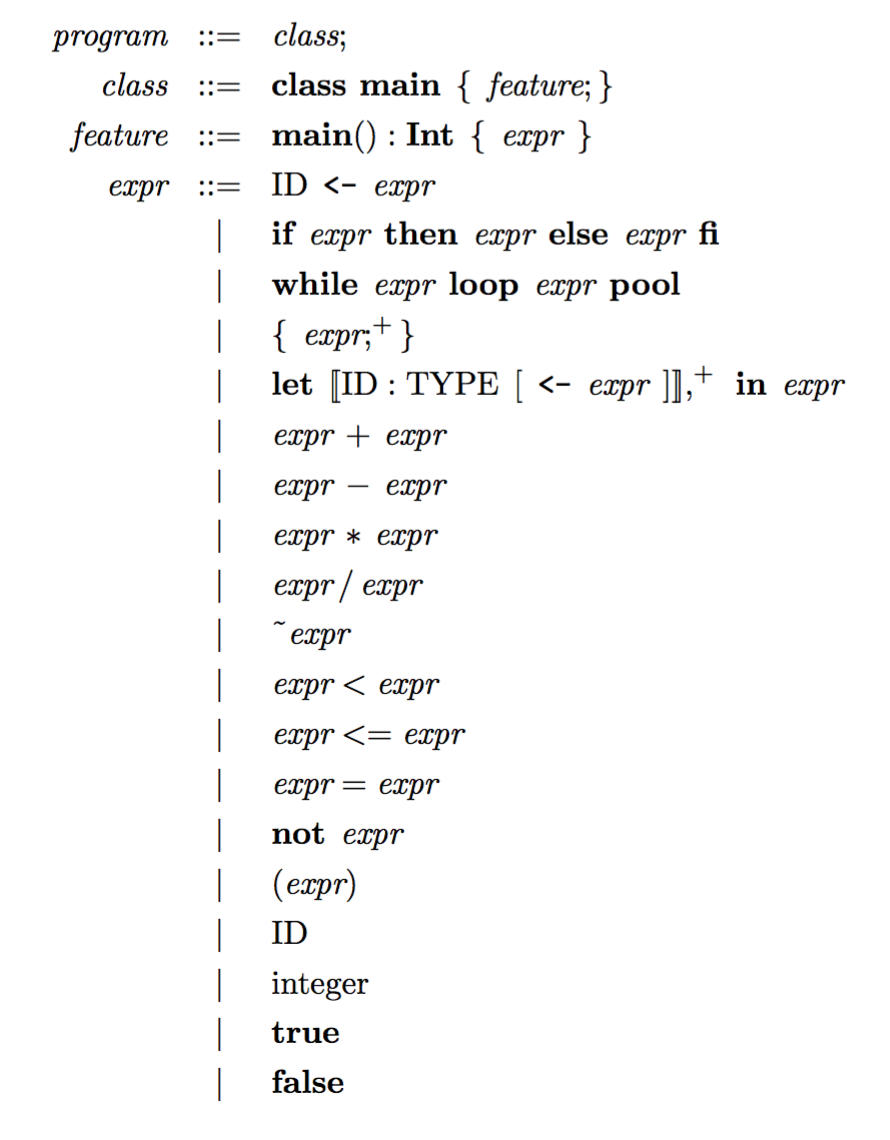CS 444/544 Compilers
Spring 2017
Assignment: Code Generation, Phase 1
In this assignment you will implement the code generation phase of the Cool compiler for non-object-oriented features of the language.
DUE: March 30th, Thursday, 23:55.
Overview
In this phase, we will write code generation capability for the following subset of Cool:

That is, we assume that the input programs will contain
a single Main class with a single method named main.
There will be no object-related expressions; i.e.
dynamic or static dispatch,
case, isvoid, or new.
The only types you must support are Int and Bool;
in particular, String is not included because it requires objects,
and SELF_TYPE is not needed in the absence of objects.
Additionally,
in this phase,
a loop expression has type Int and evaluates to the value 0.
The input to the code generator is the AST. We assume that the AST have passed through semantic analysis for any potential errors; so, do not attempt to do error checking during code generation, it’s unnecessary.
As usual, a starter code will be provided for your convenience, including several test inputs.
Notes
-
You can just generate
IntandBoolconstants as thei32andi1LLVM primitives. -
Some parts of the code generator, such as the arithmetic and comparison operators, have been written for you. Make sure you understand the given code very well.
-
Test your compiler! Test it often.
-
Since a
let-variable has a local scope, we can allocate it in the current stack frame using theallocainstruction. Allallocainstructions should be placed in the entry of thelet-block to enable themem2regoptimization so thatlet-variable can be promoted from the memory to an SSA register later on. -
Manage the environment carefully to introduce or remove bindings according to scoping rules.
-
For
if-then-else, you will need to utilize LLVM’sBasicBlocks. The given code for loops shows you an example. The special thing aboutif-then-elseis that the result of anif-then-elseis a merge of the results of the two branches. For this part, we assume that the both branches evaluate toInts. So, you can allocate ani32in the stack right before or after generating code for the condition, and then store a different result into this allocated slot in each of the branches. Finally, at the merge block, load the value stored into this slot to get the result ofif-then-else.
